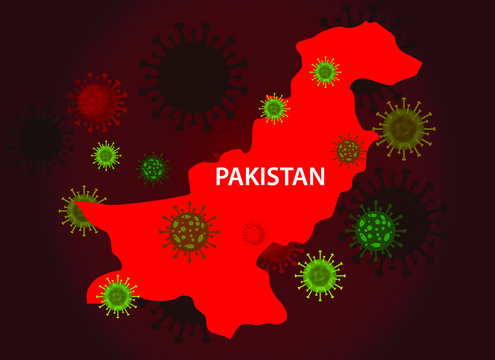Pakistan is passing through the most critical time in history due to the spread of the coronavirus (COVID-19). During the past few months, the government has decided to invest its full potential to fight with this health challenge. The outbreak of coronavirus in Wuhan city and its spread outside of China has posed a serious threat to the neighbouring states of China. Pakistan, while sharing its territorial boundaries with China has become one of the victims of this pandemic. No doubt, the global reach of COVID-19 has effected states of every region, but its impacts on the developing world have disturbed the social, economic, and political structures of the nations. Pakistan, as a part of the developing world, has become one of the most severe cases of coronavirus, and the political authorities from Islamabad have decided to fight the health challenges imposed by a global pandemic.
In an international environment of diverse changes under the threat of COVID-19, the international system is going to witness a change in global politics. Along with political changes, the social and economic infrastructures of states will embrace a new phase of human history where all nations will be compelled to redefine their global standings. A combination of changed global values and transformed domestic patterns of states will force the governments of various nations to alter the conventional frameworks of their political, economic, and social standards. Pakistan, the world’s fifth most populous country has failed to escape from the worse impacts of the COVID-19. The varying altitudes of lockdowns in four provinces, in addition to several societal measures, became the preferred security measures of Islamabad for shaping a comprehensive corona-controlling national policy. Various measures adopted by the government became ineffective in achieving the desired outcomes in the presence of limited health facilities for the general public. Moreover, a severe financial crisis affected an unprepared mind-set of the government with the dramatic rise of countrywide coronavirus cases. In this way, the medical and economic problems have undermined Islamabad’s crisis management mechanism, and the government has accepted the challenge of a global health emergency.
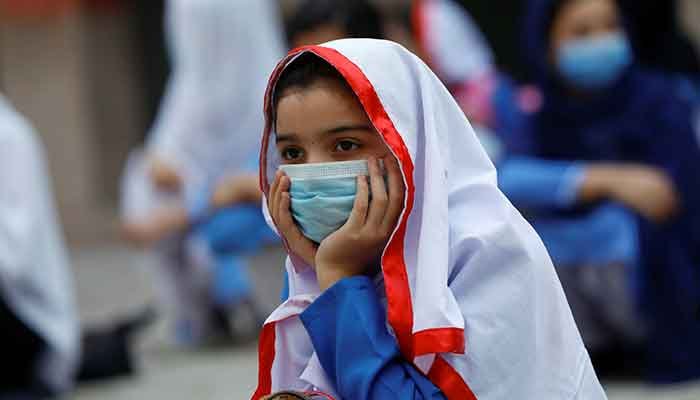
The Imran Khan government took various initiatives in the beginning at domestic and foreign fronts under the initial framework of the corona controlling policy. The closest western borders from Iran and Afghanistan parallel to shut down public and private institutions were the most immediate steps of Islamabad. Then cancelling and postponing of various national events, most importantly the cancellation of Pakistan Day Parade and the suspension of the 2020 Pakistan Super League, were considered to be the serious steps in the broader framework of corona controlling policy. The activation of the National Coordinated Committee with the help of the National Disaster Management Authority further showed the seriousness of the government in overcoming the COVID-19. For prevention of its person to person transformation, Islamabad straightaway tried to implement the policy of social distancing and attempted to eliminate mass gatherings at societal levels. Furthermore, a National Action Plan for Coronavirus disease was issued to explain Islamabad’s way of treating the rise of the pandemic as a serious threat. This 136-page policy document formulated Islamabad’s preparedness to respond to the effects of the novel corona virus.
While sharing its borders with the two most affected countries (China and Iran), Pakistan became a serious victim of the novel-corona virus. The government of Pakistan introduced various measures to immediately eliminate the worse impacts of COVID-19 at social and economic levels. Internationally, the state authorities requested the international community to support Pakistan in the struggle against the global pandemic. No doubt, the government of Pakistan is still attempting to combat the threat of viral infection disease by taking various measures, but the era of actual challenges will appear in the post corona world where Islamabad will struggle to improve its regional and global standings. The international system in the post corona environment will fabricate a new environment full of different challenges, mainly in the social, political, and economic fields. Therefore, the future challenges in the post corona scenario will be inevitable for Pakistan because the end of the corona episode in the international system will create a new world of various hard realities.
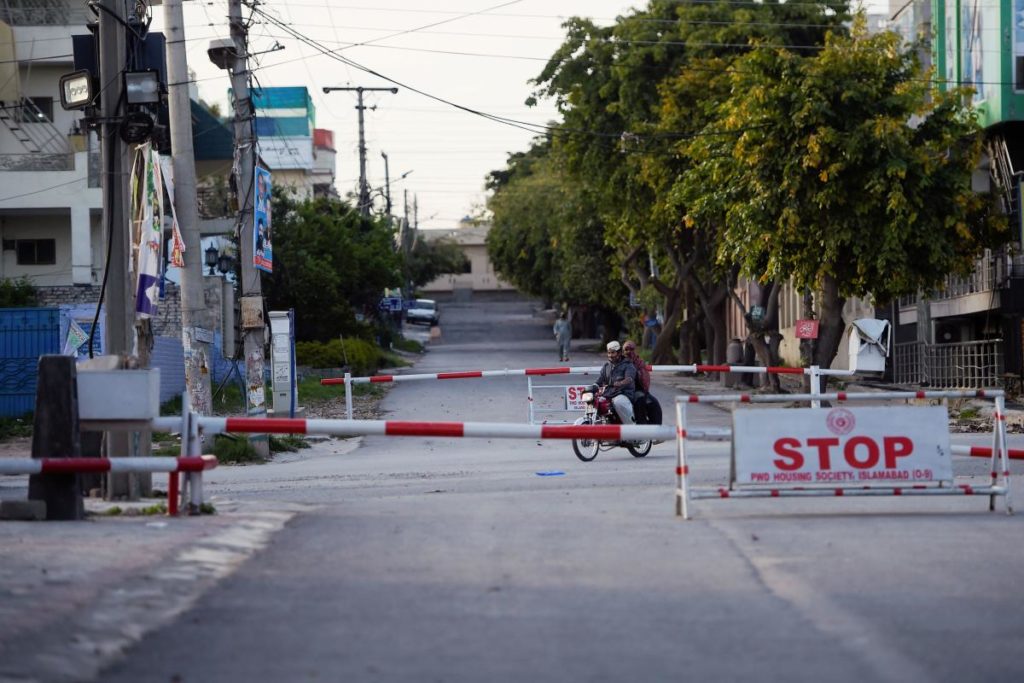
The road to ensuring a safe and secure future is based on Islamabad’s serious approach to tackling the epidemic issue. With the rise of number of cases in Pakistan, the government decided to take immediate Corona controlling steps by implementing different levels of lockdown across the country. An unprecedented level of threat compelled the political authorities of Islamabad to try and secure the Pakistani nation from the repetition of any pandemic issue in the future. In other words, the global wave of health crisis has threatened the conventional health standards of Islamabad because the arrival of an international pandemic crisis in the South Asian region affected Pakistan. It undermined the existing health standards of Islamabad. This situation has started demanding a highly safe, secure health system from the government which will enable health officials to provide adequate health facilities to the nation. The maintenance of an effective health communication mechanism parallel to adopting various sustainable preventing measures can help the government in securing the future of the nation. Analogous to many countries, the up-gradation of the traditional health system according to the demands of the time is a difficult task for Islamabad due to the scarcity of sufficient economic resources. In this way, the future of the health sector is highly dependent on the availability of proper economic means, which can empower mainstream leadership to prevent the reoccurrences of pandemic issues in the future.
Apart from addressing the future health demands of the nation, the sectarian configuration of Pakistani society is also a significant problem for Islamabad. A new wave of sectarian conflict will probably affect different segments of Pakistani society. The return of pilgrims from neighbouring Iran equivalent to the massive gathering of pan Islamic Tablighi Jamaat dramatically raised the number of cases. Both sectarian divisions of the country became the primary source of pandemic super spread and placed the whole nation under threat. The adverse impact of coronavirus further forced the government to regulate the Friday prayer gatherings. A resistance from Muslim scholars against Islamabad’s decision to close down Mosques added another dimension of religious politics in the country. The leading clerical personalities showed their unwillingness to accept limiting access to Mosques along with the hurting of sectarian religious divisions of the society as effective corona-control policies. Contrary to other Muslim countries of the world, Pakistan faced massive public resistance to its policy of regulating religious get-togethers of the people. A minor criticism appeared from different sectarian groups because people were not ready to take COVID-19, a serious threat to the nation.
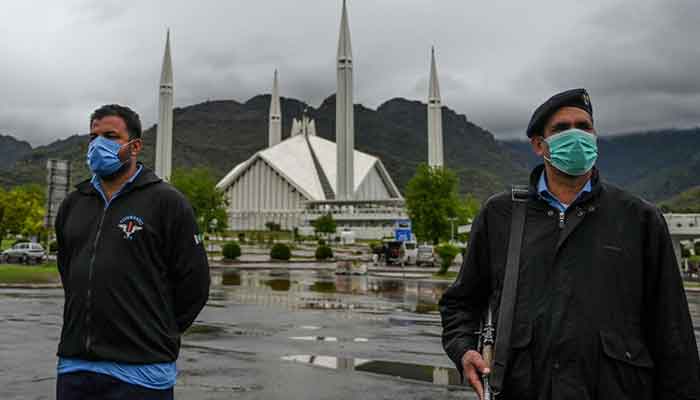
Beyond the rigid sectarian divisions of the society, the government of Pakistan will be unable to control the deteriorating societal values under the era of a global health emergency. To counter the deteriorating effects of COVID-19, Islamabad preferred to adopt a policy of social-distancing and initially requested the people for temporarily self-quarantine. Even the government obtained the help of law enforcement agencies to take precautionary measures against the spread of pandemic disease. Moreover, the military hospitals, coupled with the health facilities of armed forces were fully activated to serve the nation. These aggressive measures of Islamabad remained however proved to be weaker steps of the government in the overcrowded areas of the country. For Pakistan, a country of people living in hugely extended families, the prevention of viral spread in society became a difficult task for the government. A massive denial of accepting the policies of self-quarantine and social distancing further weakened the national level corona-combating plan of the country. The gravity of the matter, even, compelled the prime minister Imran Khan to deliver different national level addresses to maintain peace and order in the society. In order to uphold the social morality of the nation, the prime minister advanced his slogan of “not to worry.” The prevention of panic in society later compelled the government to introduced various economic relief programs in the country to uphold the nation during the crisis.
In the future, a broader societal change in the country will alter the local culture due to the emergence of post-corona societal fluctuations at the global level. The significant change in the social system will appear in the form of economic challenges because the devastating impacts of the degrading economic system on the corona-affected countries will result in a societal change. The huge burden of foreign debt has already weakened the economic performance of the governments. Various political authorities mentioned the problem of debt burden, and the demands of getting relief in external debts were raised globally by Islamabad. An initial assessment of Islamabad calculated the national economic losses of the country and mentioned the financial crisis of Rs. 2.5 trillion. Over time, the development of an effective medical system laced with multiple health facilities coupled with the manufacturing of different virus preventing medicines and their large scale distribution across the country will increase the financial burden of the government. In this way, the government will face a challenging future which will probably stigmatize the image of the ruling party in the country.
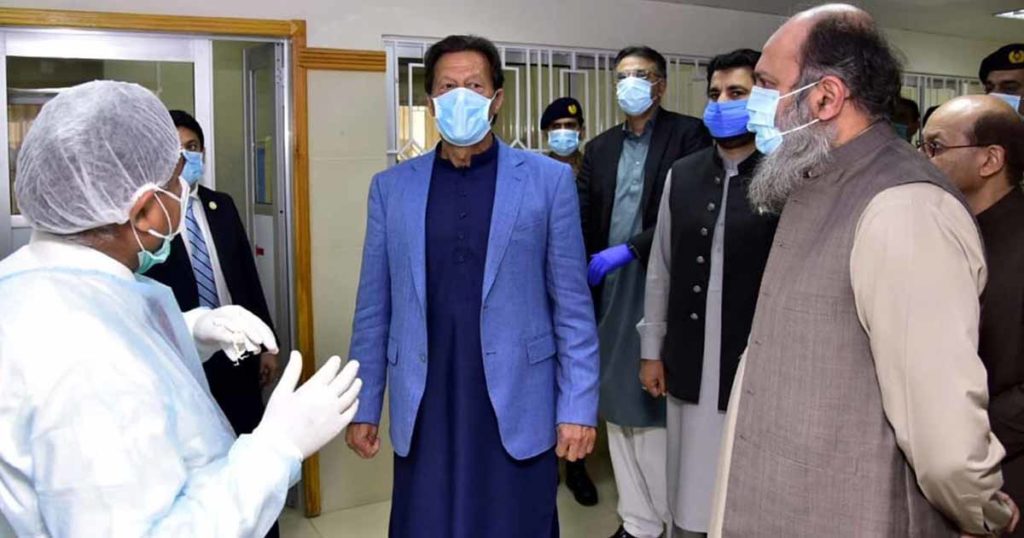
The authorities are already facing severe public criticism on their economic policies because the newly elected government of prime minister Imran Khan has introduced various financial measures to overcome the economic hurdles. The leading economists of Khan government have suggested a number of financial austerity measures to reform the weakening economic structure but their efforts remained inefficient in controlling the skyrocketing levels of economic problems. This scenario has raised a serious question on the effectiveness of government policies in responding to the COVID-19. By passing through the most critical time of its history, the government is trying to extend its political loyalty to the nation by taking various economic relief programs. Instead of implementing a broader relief plan, the newly elected prime minister is going to face the limits of populism due to passing through an unforgettable critical time of history. Imran Khan’s lack of experience in dealing with a problematic condition, in addition to its already falling popularity in the country, has further deteriorated the reputation of the ruling government. The dream of the creation of an Islamic welfare state in Pakistan underestimated the potential of the Khan government, which will leave a worse impact on local politics. In the future, the public demands of change at various fronts will be multiplied under the rising unsatisfactory levels in society. In other words, the unanswered question of bad governance and its negative impact on society will complicate the issue of political polarization in the country. A new struggle between leading political parties will become a serious issue for the ruling political party under Khan’s leadership. In this way, a minor change in the political landscape of the country will be able to bring major changes for the entire nation.
Therefore, the novel-corona virus is going to create a world of new realities for Pakistan, and a densely populated country of South Asia is going to enter in a new era of various challenges. Due to the change of the international system in the post-corona scenario, the political authorities from Islamabad are trying to secure the country against the COVID-19. An overwhelming wave of crisis is going to engulf the Pakistani nation after surviving the humanitarian disaster of the novel coronavirus. An effective strategy to counter the rise of corona cases parallel to controlling the troubled economic situation will push Pakistan toward a new era of crisis. An effective strategy of managing the future challenges will be based on an updated way of addressing new security threats because the novel-corona virus and its large-scale impacts on different fields of life have fabricated a new environment and placed the whole international system under serious circumstances. People in the world’s capitals are trying to formulate different policies to secure their futures because the future of the international system is going to change the fate of the world. Contrary to the developed nations, the leaders of the third world or developing countries are going to face an uncertain future of new realities. While keeping in mind the scenario mentioned above, greater losses will be faced by the governments of third world countries. Including Pakistan, the leaders of developing countries are compelled to depart from their conventional ways of managing the national crisis. By taking various measures in domestic politics, Islamabad can redefine its position in the international system by adopting timely measures. An appropriate application of solid policy steps, mainly in the health field, can let the government secure the future of the nation.


